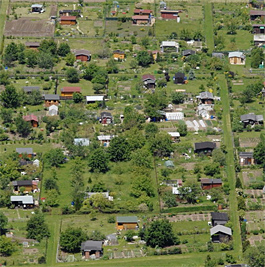
People are permanently moving to cottages, especially the older ones
 |
"The trend of using cottages and chalets for permanent living is pronounced. It is consistent among owners of recreational properties who are retired. There is also a slight increase in interest from other groups, but there the situation is more complex due to complications related to long commutes to work, limited civic amenities, poorer engineering networks, or poor accessibility in winter," stated Michal Kresta, the sales director of Realitní kancelář Sting.
Analyst Ondřej Diblík from Lexxus points out that this option is primarily chosen by poorer individuals. "Some cottages are really being used for permanent residence mostly by less affluent owners who have passed their apartments on to their children, or have simply rid themselves of the burden of paying rent. An increasingly common housing alternative today is especially suburban cottage areas, but also garden colonies right in the city," Diblík noted, emphasizing that distance and accessibility remain very important. "Cottage areas 'on the train' will certainly be the most suitable option," believes the Lexxus analyst.
According to Marek Sklenář, the executive director of ERA Reality ČR, recreational properties are sought for permanent living mainly because of their lower price. "A year-round livable cottage is an alternative to a family house primarily for clients who are willing to accept a lower living standard in exchange for lower acquisition costs," said Sklenář.
He too notes that there is the greatest interest in this type of property in the vicinity of larger cities, where commuting to work is possible even in the winter months. "There is interest in cottages with at least a small garden, in a condition ready for immediate habitation, even though buyers often count on the necessity of further modifications and investments, such as insulation, the completion of living spaces, changes in heating methods, and so on," Sklenář added.
Communities are increasingly responding to this trend, organizing previously uncommon waste collection or road maintenance in cottage areas. "Some municipalities even allow the registration of permanent residence in recreational properties that have a house number, access road, and secured regular waste collection," noted Monika Christová from the sales department of Maxima Reality, adding that young people, particularly in adjacent locations to Prague, are interested in such housing. "Older people in retirement age, on the other hand, seek seasonal homes in recreationally attractive locations," Christová added.
Some municipalities have even changed cottage areas to residential zones in their urban plans, thereby creating conditions for their gradual regeneration. "The original structures are thus being replaced by more or less suitable family houses, and areas, originally abandoned and left to vandals during the entire winter, now have permanent residents. Wooden cottages in fruit gardens now contrast with the cubes of family houses featuring stainless steel chimneys, solar panels, and air conditioning units," described some locations' current status Diblík from Lexxus.
However, a potential buyer considering the reconstruction of a derelict cottage is warned of many obstacles that accompany modifications of this type of property. "The reconstruction of low-quality, often self-built structures is economically disadvantageous, and the solution is only demolition and the construction of a new family house, even if it is just for weekend recreation again. Cottages do not fall under the reduced VAT rate, and various benefits and subsidies for housing cannot be applied to them," Diblík warned.
A person living in their own house or apartment should carefully consider the sale of their property and the subsequent move to a recreational property. "Economically, it does not make sense; there must be a predominance of other subjective reasons. Seniors, who are no longer economically active and do not have to commute to work daily, also think about the necessity of accessible services and medical care, which most recreational locations do not meet," emphasized Sklenář from ERA Reality ČR.
The English translation is powered by AI tool. Switch to Czech to view the original text source.
0 comments
add comment











